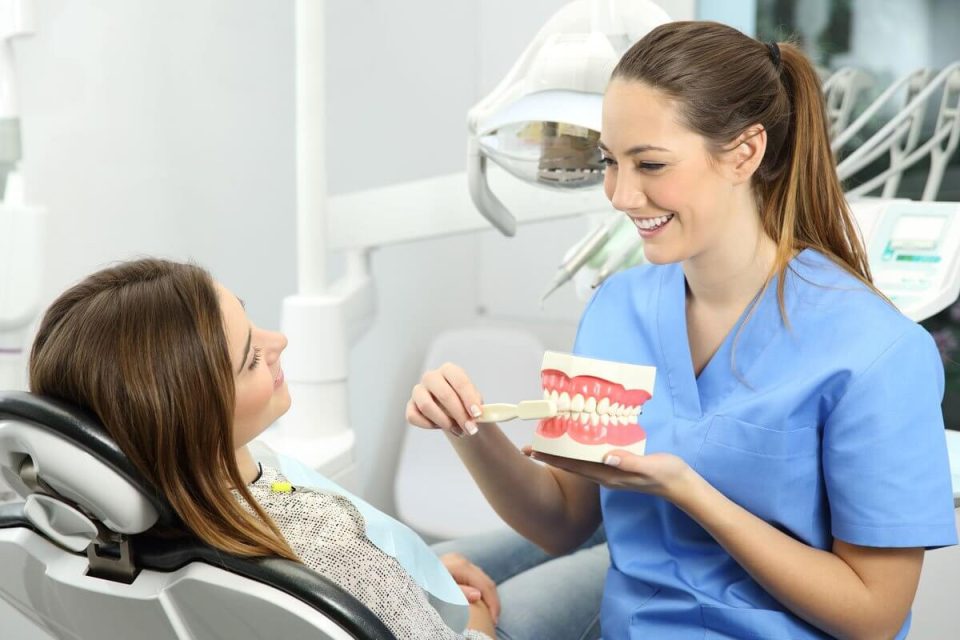Welcome to our comprehensive guide on the importance of regular dental check-ups. Your oral health plays a crucial role in your overall well-being, and maintaining good oral hygiene is essential for a happy and healthy life. In this article, we will explore the reasons why regular dental check-ups are vital, the benefits they offer, and how they can prevent serious dental issues in the long run.
Why Regular Dental Check-ups Matter
1. Early Detection of Dental Problems
Regular dental check-ups enable st kilda dentist to detect dental problems at their early stages. Early detection of issues such as cavities, gum disease, or oral cancer can save you from more significant problems and costly treatments down the road.
2. Preventive Care
Prevention is always better than cure. Dental check-ups allow dental professionals to provide preventive care, such as cleanings, fluoride treatments, and sealants, which can significantly reduce the risk of dental issues.
3. Maintaining Oral Hygiene
Even if you maintain a strict oral hygiene routine at home, professional dental cleanings during check-ups can remove plaque and tartar buildup that regular brushing and flossing may miss.
4. Addressing Bad Habits
A dentist can identify harmful habits like teeth grinding or clenching, which may be causing damage to your teeth. They can then provide guidance on how to stop or minimize these habits.
5. Checking for Signs of Oral Cancer
Oral cancer is a serious condition that can be life-threatening if not detected early. Regular dental check-ups include an oral cancer screening, helping identify any suspicious signs that need further evaluation.
What to Expect During a Dental Check-up
1. Dental Examination
During your check-up, the dentist will examine your teeth, gums, and mouth for any signs of issues. X-rays may be taken to get a more in-depth view of your oral health.
2. Professional Cleaning
A dental hygienist will perform a thorough cleaning, removing plaque and tartar buildup from your teeth and gumline.
3. Oral Health Education
Your dentist will provide advice and tips on maintaining good oral health, including proper brushing and flossing techniques.
The Role of Dental Professionals
Dental professionals play a crucial role in ensuring optimal oral health for individuals of all ages. They are trained and skilled in various aspects of dentistry, providing a range of services to address different dental needs. The key dental professionals include dentists, dental hygienists, and dental specialists.
1.Dentists:
Dentists are the primary oral care providers. They are highly educated and licensed professionals who diagnose dental issues, create treatment plans, and perform various dental procedures. Dentists are well-versed in general dentistry, which includes dental examinations, cleanings, fillings, root canals, and tooth extractions. They also play a vital role in educating patients about oral hygiene practices and preventive care to maintain healthy teeth and gums.
2.Dental Hygienists:
Dental hygienists specialize in preventive dental care and work alongside dentists to support overall oral health. They are responsible for cleaning teeth, removing plaque and tartar, and conducting dental assessments. Dental hygienists also play a critical role in educating patients about proper brushing and flossing techniques, as well as the importance of maintaining good oral hygiene habits at home.
3.Dental Specialists:
Dental specialists are dentists who have completed additional training and education in specific areas of dentistry. These specialists focus on providing specialized care for particular dental conditions or issues. Some common dental specialties include orthodontics (for braces and aligners), periodontics (for gum disease treatment), endodontics (for root canal therapy), and oral surgery (for complex dental procedures).
Frequency of Dental Check-ups
The recommended frequency of dental check-ups can vary from person to person, but generally, it is recommended to visit your dentist every six months. However, individuals with specific dental conditions or risk factors may need more frequent visits.
Conclusion
Regular dental check-ups are a vital aspect of maintaining good oral health and overall well-being. They provide early detection of dental issues, offer preventive care, and help keep your smile bright and healthy. Remember to schedule your dental appointments regularly and follow your dentist’s advice for optimal oral hygiene.

